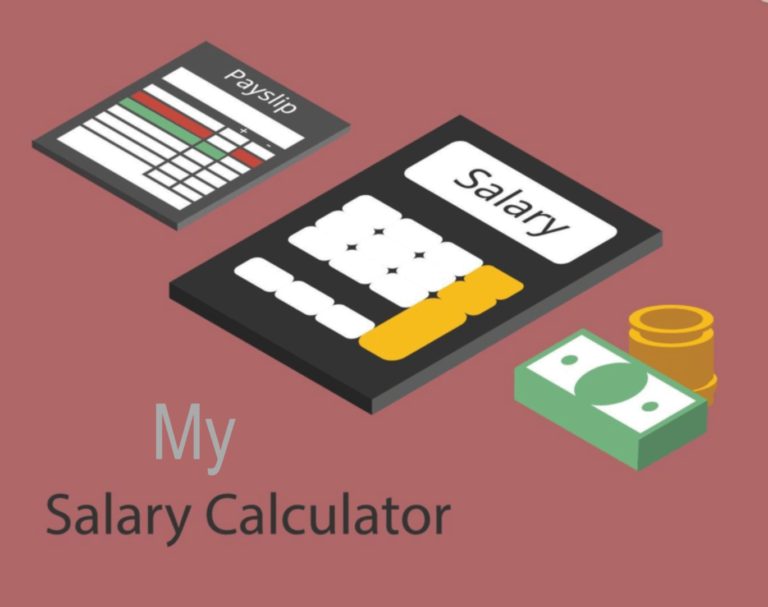Introduction
Salary sacrifice is a financial arrangement where an employee agrees to give up part of their pre-tax salary in exchange for specific benefits provided by their employer. It’s a widely used strategy in many countries, offering tax savings and access to perks. However, its applicability, benefits, and drawbacks vary significantly depending on local laws. This blog will explore salary sacrifice in-depth, including qualifications, pros and cons, and real-world examples from the UK, USA, France, Italy, Spain, Germany, and China.
What is Salary Sacrifice?

Salary sacrifice is a voluntary agreement between employees and their employer to reduce their salary in return for non-cash benefits. These benefits could include additional pension contributions, a company car, childcare vouchers, or other perks.
Key Features:
- Reduces taxable income, potentially lowering the employee’s tax and National Insurance Contributions (NICs).
- The benefits are often tax-efficient, making them more valuable than purchasing them with post-tax income.
- It’s typically used for long-term or recurring benefits like pensions or transportation schemes.
What Qualifies for Salary Sacrifice?
The specific benefits that qualify vary by country, but common examples include:
1. Pensions
- Enhanced employer contributions to retirement funds.
2. Childcare
- Vouchers or subsidised childcare schemes.
3. Company Cars
- Low-emission vehicles or electric car leasing.
4. Health and Wellbeing
- Private health insurance, gym memberships, or cycle-to-work schemes.
5. Other Benefits
- Work-related training, mobile phones, or subsidised public transport.
Benefits of Salary Sacrifice
- Tax Savings: Reduces the employee’s taxable income, resulting in lower income tax and, in some countries, reduced social security contributions.
- Employer Savings: Employers may save on payroll taxes, encouraging them to offer more comprehensive benefits.
- Cost-Efficiency: Employees receive better value for money compared to purchasing benefits independently.
- Improved Work-Life Balance: Access to benefits like childcare or transportation can enhance employee satisfaction and productivity.
Drawbacks:
- Reduced Pensionable Salary: Salary sacrifice can lower the employee’s gross salary, which may reduce pension contributions in some schemes.
- Impact on Statutory Benefits: Benefits like maternity pay, sick pay, or redundancy pay may be affected if based on the reduced salary.
- Contractual Obligations: Salary sacrifice agreements may be difficult to alter or terminate mid-term.
- Limited Eligibility: Not all employees qualify for salary sacrifice, particularly those on minimum wage (as the salary cannot drop below the legal minimum).
Examples of Salary Sacrifice in Different Countries
1. United Kingdom (UK)
Common Benefits:
- Pension contributions.
- Electric vehicle leasing (tax-efficient for low-emission cars).
- Cycle-to-work schemes.
Example:
An employee earning £40,000 reduces their salary by £2,000 annually to lease an electric vehicle. The reduction lowers their taxable income to £38,000, saving on tax and NICs.
Tax Benefits:
Significant savings on NICs and eligibility for green transport perks.
2. United States (USA)
Common Benefits:
- Health insurance premiums (offered under Section 125 plans).
- 401(k) retirement contributions.
- Commuter benefits.
Example:
An employee earning $70,000 contributes $5,000 pre-tax to their 401(k) retirement plan. This reduces their taxable income to $65,000, resulting in tax savings while growing their retirement fund.
Tax Benefits:
Savings on federal income tax and, in some cases, state taxes.
3. France
Common Benefits:
- Meal vouchers (tickets to restaurants).
- Commuter passes (public transport subsidies).
- Retirement savings plans (Plan d’Épargne Retraite).
Example:
An employer provides €1,500 worth of commuter subsidies annually under salary sacrifice. The employee’s taxable income is reduced accordingly, leading to savings on income tax and social security contributions.
Tax Benefits:
Significant reduction in social security charges.
4. Italy
Common Benefits:
- Meal vouchers.
- Pension fund contributions (Fondo Pensione).
- Health insurance.
Example:
An employee earning €50,000 sacrifices €3,000 towards a pension fund, reducing their taxable income to €47,000. This leads to lower tax liability and higher retirement savings.
Tax Benefits:
Employees benefit from reduced income tax on pension contributions.
5. Spain
Common Benefits:
- Transportation passes.
- Nursery and childcare vouchers.
- Flexible working benefits.
Example:
An employee earning €35,000 sacrifices €2,000 for childcare vouchers. This reduces their taxable income to €33,000, saving on income tax.
Tax Benefits:
Employees can save significantly on social security contributions.
6. Germany
Common Benefits:
- Company pensions (Betriebliche Altersvorsorge).
- Meal allowances.
- Subsidised transportation.
Example:
An employee earning €60,000 sacrifices €5,000 for a company pension scheme. Their taxable income decreases to €55,000, leading to significant savings.
Tax Benefits:
Employees save on both income tax and social insurance contributions.
7. China
Common Benefits:
- Housing fund contributions.
- Meal and transportation subsidies.
- Education allowances for children.
Example:
A consultant earning ¥500,000 annually sacrifices ¥50,000 for housing fund contributions. This reduces their taxable income to ¥450,000, saving on personal income tax.
Tax Benefits:
Reduced personal income tax and access to subsidised housing.
How to Set Up an Agreement
- Discuss with Your Employer: Check if your organisation offers salary sacrifice schemes.
- Review the Benefits: Evaluate which benefits align with your financial goals.
- Sign an Agreement: Formalise the arrangement with a written agreement outlining the salary reduction and benefits received.
- Monitor Impact on Pay: Ensure your take-home pay remains sufficient for your needs.
FAQs:
Q1: Can I opt out of salary sacrifice mid-year?
It depends on the agreement and the type of benefit. Some benefits, like pensions, may allow flexibility, while others may not.
Q2: Does salary sacrifice affect my pension?
Yes, it can reduce your pensionable salary, but many schemes offer “notional pay” arrangements to protect your pension contributions.
Q3: Are salary sacrifice schemes worth it?
They are beneficial for tax savings but may impact statutory benefits like maternity pay or redundancy pay.
Q4: Can I use salary sacrifice on minimum wage?
No, your reduced salary must not fall below the legal minimum wage.
Conclusion
The schemes offer a powerful way to save on taxes while enjoying valuable benefits. However, their effectiveness depends on your country’s tax regulations and the benefits offered by your employer. Whether you’re in the UK, USA, or anywhere else, understanding how salary sacrifice works will help you maximise its potential for your financial well-being.
Useful External Links for Salary Sacrifice
UK Government: Salary Sacrifice and Tax
IRS: Cafeteria Plans (USA)
France Public Service: Employee Benefits
China Labour Laws: Employee Benefits
If you’d like to compare salaries in other countries, here are some helpful resources:
Global Net Pay Calculator: compare take-home pay across countries, understand deductions, and plan smarter for your next career move.



